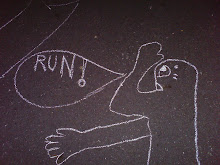
Aristotle taught that poetry could be divided into three genres: Tragedy, Comedy, and Epic verse. Poetics focuses mainly on tragedy . Aristotle distinguishes between the three genres of poetry in three ways: differences in the means and objects and the modes of their imitations. Aristotle argued that the function of the tragedy was to evoke emotions of fear or pity in the audience and therefore produce catharsis. He stated that the best form of tragedy was that which consists of a “complex” plot. This plot is one that contains and provokes terror, fear and sympathy. Plot is "the first principle and, as it were, the soul of the tragedy." He stated that once the structure of the plot was understood it was possible to appreciate how tragedy affects the audience. There are many films that are out there that can be compared to Aristotle’s Poetics. I believe that one of these films is Romeo and Juliet.
The idea of the tragic hero is another element of Aristotle’s theology.
According to Aristotle, a tragic hero is a character who is usually of high birth. This character is neither completely good nor is he completely evil either. His downfall is brought about by a tragic weakness or error in judgment. For the audience to accept a tragic ending , it is crucial that the tragic hero be responsible for his own undoing. However at the same time they must remain admired. We see this within the film, “Troy”. The Tragic hero in this circumstance is Achilles.
INTERESTING LINKS-ARISTOTLE POETICS:
http://classics.mit.edu/Aristotle/poetics.1.1.html
http://www.leeds.ac.uk/classics/resources/poetics/poettran.htm
http://philosophy.eserver.org/aristotle/poetics.txt


No comments:
Post a Comment